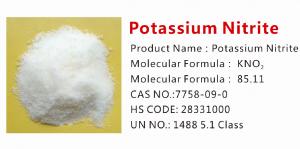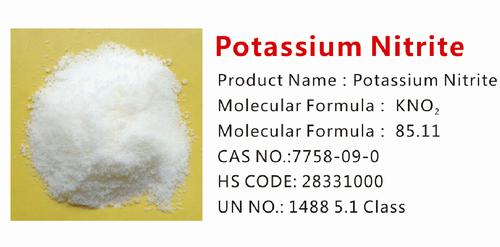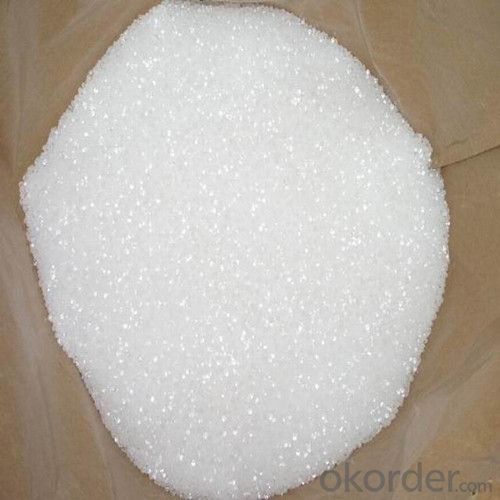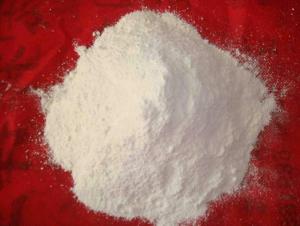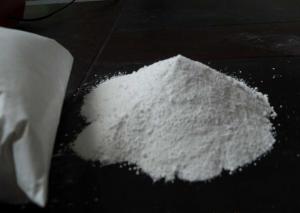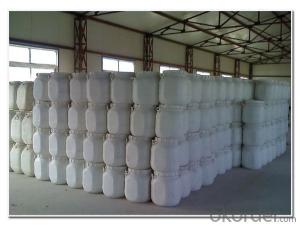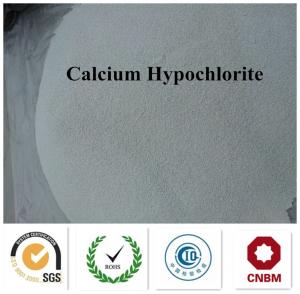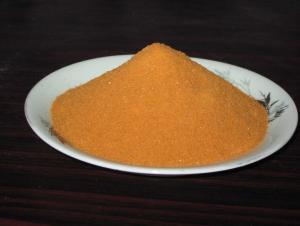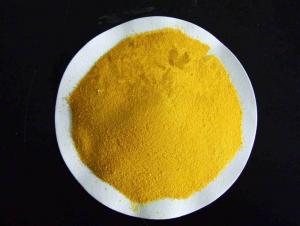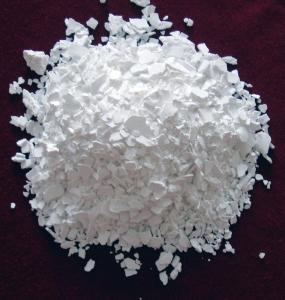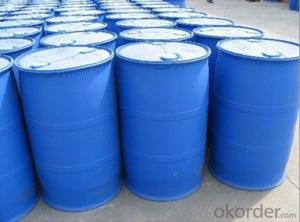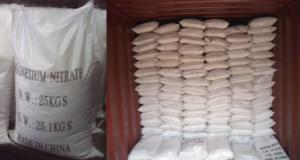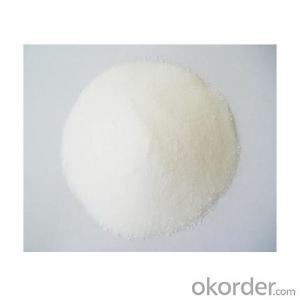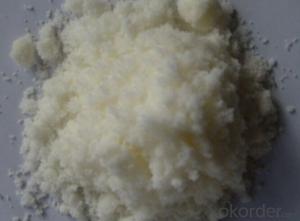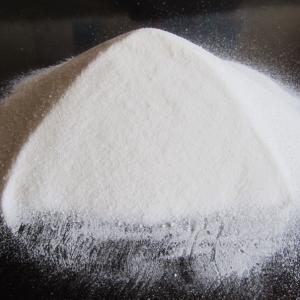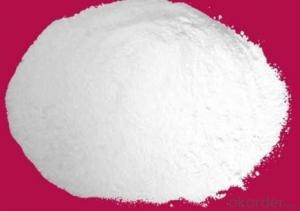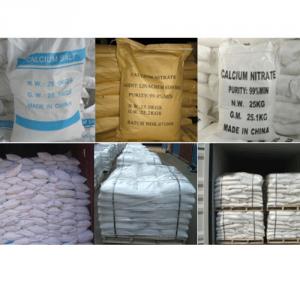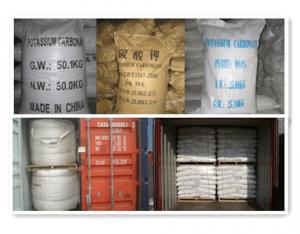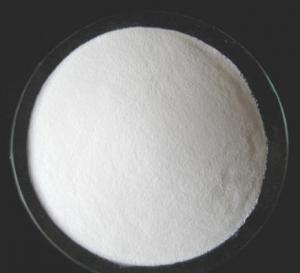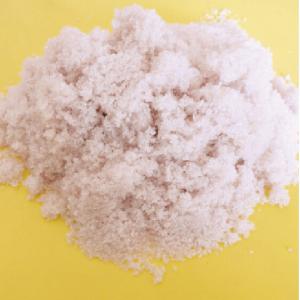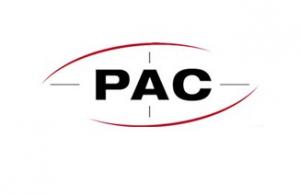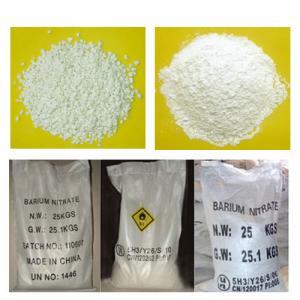Potassium Nitrite KNO2 Powder Chemical
- Loading Port:
- China main port
- Payment Terms:
- TT OR LC
- Min Order Qty:
- 1000 kg
- Supply Capability:
- 500000 kg/month
OKorder Service Pledge
OKorder Financial Service
You Might Also Like
Potassium Nitrite
Product Name:Potassium Nitrite
Molecular Formula: KNO2
Molecular Formula: 85.11
CAS NO.:7758-09-0
HS CODE: 28341000
UN NO.: 1488 5.1 Class
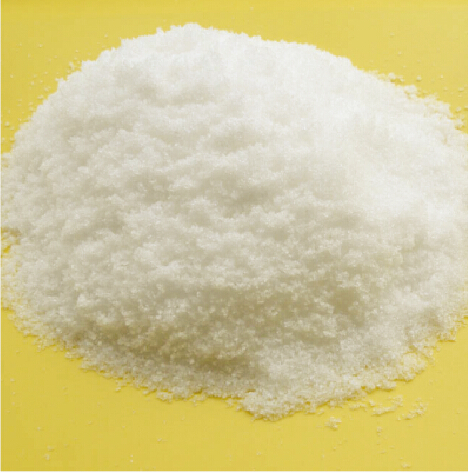
Description:
Potassium nitrite is a granular, crystalline material with an off-white-to-straw
color. It is hygroscopic, deliquescent and very soluble in water. It decomposes
in acid solutions to form unstable nitrous acid. Potassium nitrite is sold as
a moist crystal to help delay the onset of caking.
Some downward migration of moisture can occur in drums during storage.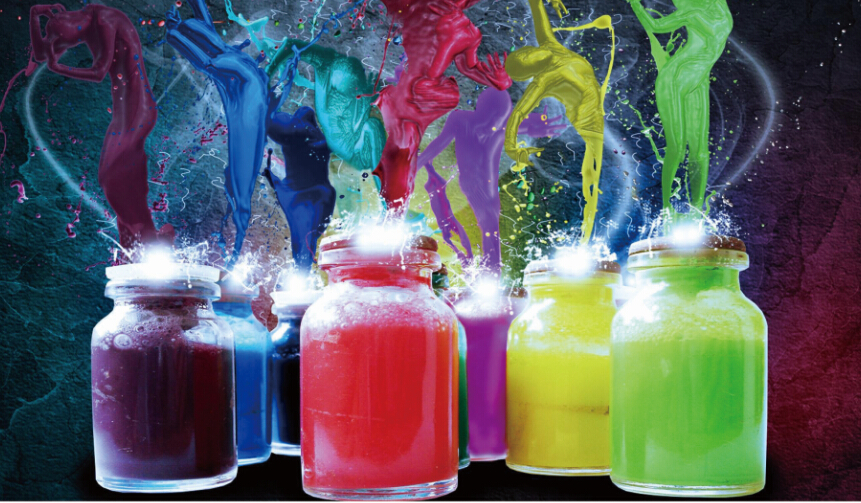
Specifications:
| Index name | Unit | Premium grade | First grade |
| Assay | ≥ | 98 | 96 |
| Chlorides | ≤ | 0.02 | 0.02 |
| Sulphates | ≤ | 0.02 | 0.02 |
| Heavy metal (as Pb) | ≤ | 0.005 | 0.005 |
| Water insoluble matter | ≤ | 0.01 | 0.02 |
| Iron (as Fe) | ≤ | 0.005 | 0.005 |
| PH | |||
| Moisture | ≤ | 2 | 2.5 |
Potassium nitrite is a strong oxidizing agent and should be kept away from organic materials and other
oxidizable substances. Contact with acids can liberate toxic NOx gas. Potassium nitrite may irritate skin,eyes and mucous membranes. Do not inhale dust or mist. Do not ingest. As with any chemical, potassium
nitrite requires care in handling. Anyone responsible for the procurement, use or disposal of this
product should familiarize himself and those handling the product with the appropriate safety and
handling precautions. This information is available in the Material Safety Data Sheet, which may be
obtained by contacting our Customer Service Group.
Packing: In 25/50kg net PP/PE bag or the demanding of customer.
FAQ
1.Q: What is MOQ?
A: Our MOQ is 1 TON.
2.Q: Could you offer free sample?
A: We can provide free samples to you for quality testing.
3.Q: What about your packing?
A: For liquid: Flexitank, or IBC tank 1000L
For powder:Woven fabric bag with plastic film liner( 25kg or 1000kg)
Clients’ packing is workable.
4.Q: How about your productive capacity?
A: 150000 tons/Year.
5.Q: What is your delivery time?
A: Within 7 days after received deposit or L/C at sight.
- Q: anybody here knows the difference of organic iron salt (ex. F.gluconate) vs inorganic (ex. F.sulfate)?
- It it's organic, then the anion (the negative ion) is the conjugate base of an organic acid. If it's inorganic, then the original acid was inorganic (like H2SO4 making sulphates).
- Q: Several kinds of inorganic salt food sources?
- Milk containing calcium, spinach iron, kelp containing iodine, oysters containing zinc, carrots containing A, tomatoes containing C, mushrooms with B1, sun can get D
- Q: The effect of inorganic salt medium and the difference with enrichment medium
- The enrichment of nutrients is based on the basis of nutrition based on some kind of nutrient-rich substances for the target cells, the purpose is to increase the number of target cells, so that the formation of growth advantages, so as to achieve the purpose of separation, such as we have to be separated Pseudomonas aeruginosa, this bacteria particularly like blood, so you can add blood in the medium, so that the formation of growth advantages of this bacteria.
- Q: What is the inorganic salt
- Inorganic salts are inorganic compounds in the salt, formerly known as minerals, the body has been found in more than 20 species, including constant elements of calcium, phosphorus, potassium, sulfur, sodium, chlorine, magnesium, trace elements are iron, zinc, , Chrome, cobalt, iodine, etc. If you pay attention to diet diversification, eat less animal fat, eat brown rice, corn and other coarse grains, do not eat too much refined flour, the body can make the inorganic salt to maintain normal level.
- Q: Does the inorganic salt fight the mass spectrum?
- Can it be specific? What mass spectrometer, which inorganic salts. Do EI need samples can be vaporized, inorganic salts obviously not appropriate
- Q: Which solvents have some solubility in inorganic salts
- A wide variety of dyes, dissolved complex. The original dyes are organic, but some salt, some metal complexes, some of the larger molecules of the fused ring compounds, some polymer heterocyclic compounds, in some common organic solvents in the solubility is better than disperse dyes Raw dyes and oil-soluble dyes (this is actually the raw material of solvent pigments, strictly speaking, not dyes). There are basically additives in the finished dyes, such as direct dyes, acid dyes, reactive dyes, cationic dyes and other water-soluble dyes will be added inorganic salts, disperse dyes, reducing dyes will be added sulfonate sodium dispersant. In addition, the dye and other chemical products, their purity requirements are generally very low, will allow the presence of certain insoluble impurities. So the organic solvent can not be completely dissolved dye products really is very common or even a normal phenomenon.
- Q: General identification method of inorganic salts
- Take platinum wire, with hydrochloric acid wet, dipped in the test sample, burning in the colorless flame, the flame that was purple. But a small amount of sodium mixed, must be separated from the blue glass perspective can be identified. 2K ++ [PtCI6] 2- → K2PtCI6
- Q: What substances can detect inorganic salts
- To see what inorganic salt, and mainly to test metal ions. Since it is sweat, then the main salt, that is, NaCl, which is detected NA + and CL-.
- Q: Inorganic salts are not nutritious
- Nutritional substances are sugar protein fat three nutrients
- Q: Is iodized salt inorganic or organic?
- "Iodized salt" is sodium chloride which contains minute amounts of iodine-containing salts. The most commonly added iodine salts are: potassium iodate, potassium iodide, sodium iodate, and sodium iodide. All of these compounds are inorganic. By the way, while methyl iodide is organic, it is not a salt.
Send your message to us
Potassium Nitrite KNO2 Powder Chemical
- Loading Port:
- China main port
- Payment Terms:
- TT OR LC
- Min Order Qty:
- 1000 kg
- Supply Capability:
- 500000 kg/month
OKorder Service Pledge
OKorder Financial Service
Similar products
Hot products
Hot Searches
Related keywords
